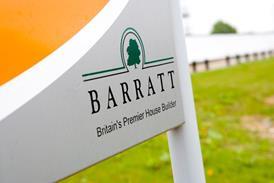Housing and planning minister John Healey has unveiled a detailed timetable for the implementation of the new planning regime for major infrastructure projects.
He said the Infrastructure Planning Commission introduced by the Planning Act 2008 will be ‘up and running from October’ and accepting applications from the energy and transport sectors from 1 March 2010.
Two preferred candidates to fill the commission’s two deputy chair positions have also been unveiled and are: Dr Pauleen Lane, an elected member of Trafford Metropolitan Borough Council and a member of the Tenants Services Authority; and Robert Upton, who is currently secretary-general of the Royal Town Planning Institute, were selected.
The Communities and Local Government select committee will hold a pre-appointment hearing to report on their suitability for these posts.
The planning commission’s aim is to streamline the planning process for major infrastructure projects such as large wind farms, power stations and railways.
It plans to ‘create a more efficient, transparent and accessible planning system which can deliver the critical infrastructure Britain needs to meet our climate change objectives and compete in a tough global economy’.
Healey said: ‘The Infrastructure Planning Commission (IPC) is critical to delivering a fairer, faster planning system that will enable us to cut the time taken to make decisions from up to seven years down to under a year. It will also give the public more opportunities for their opinions to be heard.
‘Businesses have told us they want certainty and predictability about how the new regime will work. Today I am confirming the dates from when the IPC will consider applications from each sector.
‘This timetable is being set now to ensure developers will be talking to the IPC before it starts taking applications. I am also setting out rules for how the IPC will work, what developers will need to do and how members of the public and interested parties can get involved.
‘The IPC will help us deliver a new generation of renewable energy infrastructure sources such as wind power to reduce our fossil fuel addiction and meet our ambitious zero carbon goals. Reforming the system means many low carbon power sources will now get faster approval, and the country could save £300m a year.’
From October, the commission will be advising promoters and other interested parties on the new process, for example ensuring that they consult local communities effectively and prepare their applications to a high standard.























